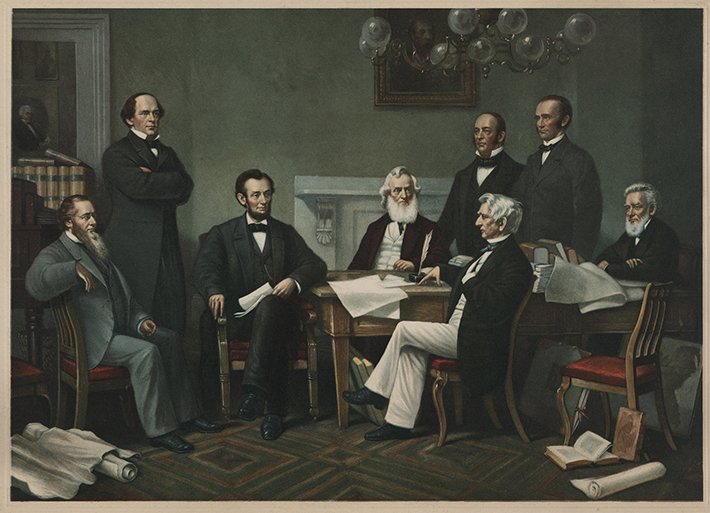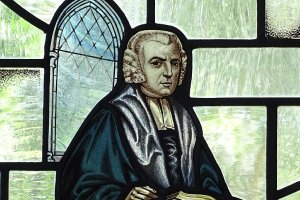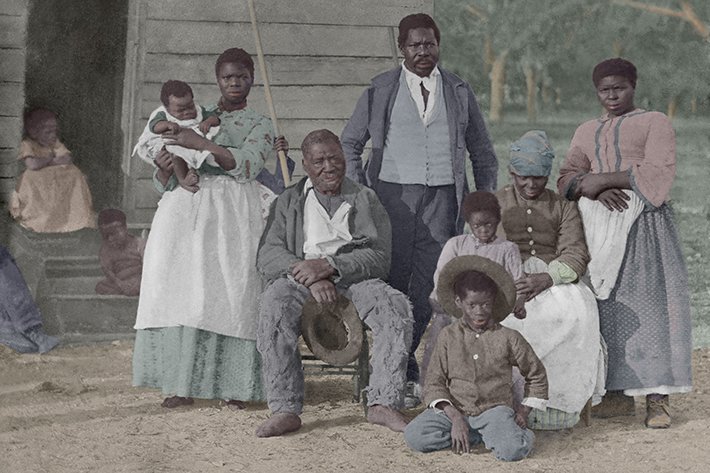On January 31, 1865, Congress passed the 13th Amendment to the Constitution of the United States, which when ratified in December of that year, officially ended slavery in America.

While the forces that led to this milestone were many, one group that relentlessly championed the rights of every man and woman to live free was the Quakers—the Society of Friends—to whom slavery in any form is a violation of their most fundamental beliefs.
According to the Friends General Conference, Quakers “affirm that ‘there is that of God in everyone.’ Everyone is known by God and can know God in a direct relationship.” And in the documentary Philadelphia, the Great Experiment, journalist Juan Williams speaks of “the Quakers attitude toward racial diversity or integration or racial equality…their notion of equality and opportunity extends from this Quaker idea …that every man and every woman has that of God within…”
Members of this religion were among the most stalwart opponents of slavery and were prime movers in the protection of the rights of the slave and the abolition of the practice in America. As early as 1688, the Quakers of Germantown, Pennsylvania, were the first religious organization in America to condemn slavery.
In 1746 John Woolman of New Jersey and fellow Quaker Isaac Andrews traveled some 1,500 miles to Virginia, Maryland and North Carolina to observe the plight of the slaves and advocate for their release. Informed by his religious convictions, Woolman, an ardent and outspoken abolitionist, wrote in his journal, “As the mind was moved by an inward principle to love God as an invisible, incomprehensible Being, by the same principle it was moved to love him in all his manifestations in the visible world. That as by his breath the flame of life was kindled in all animal and sensible creatures, to say we love God as unseen and at the same time to exercise cruelty toward the least creature moving by his life or by life derived from him was a contradiction in itself.”
Woolman visited fellow Quakers to convince them to free their slaves and to cease doing business with those who used slave labor. He was an influential member of the Philadelphia Yearly Meeting of the Society of Friends, which in 1758 urged members to free their slaves, banned the buying and selling of slaves, and banned those who continued the practice from doing business with the society.
By 1774, anti-slavery sentiment among Quakers was such that those who still owned slaves were expelled from the Society of Friends.
Many Quakers were active in the Underground Railroad, among them Levi Coffin and his wife Catharine who are said to have helped some 3,000 fugitive slaves escape to freedom in Canada.
In addition to their leadership in the abolitionist movement, Quakers have been activists in many other initiatives to advance human rights. Two of the most famous champions of universal suffrage, Susan B. Anthony and Alice Paul, were Quakers.
In 1956, pacifist Bayard Rustin, a Quaker, introduced Rev. Martin Luther King Jr. to the nonviolent civil disobedience methods of Mahatma Gandhi and Rustin also organized the 1963 March on Washington.
“The Quakers have had a long and honorable part in the growth of our nation.”—Supreme Court Justice Hugo Black
But Quakers were not always influential and accepted members of society. As with other new religions, their formative years were marked by persecution and travail.
The Religious Society of Friends was founded by George Fox in England in the 17th century. Fox was jailed for blasphemy in 1650 and spent much of the 1660s behind bars, but he continued to share his beliefs, which were at odds with religious and social norms of the day. He and his followers believed that men and women are equals. They had no religious rituals or ministers. Their beliefs led them to adopt pacifism and to refuse to take legal oaths. Subjected to torture and imprisonment, English Quakers began to seek religious freedom in the New World.
For some, this was unsuccessful. For example, William Robinson and Marmaduke Stevenson, who traveled to the Massachusetts Bay Colony in 1656, were executed for their beliefs. Clearly, not all of the American Colonies were open to new religious beliefs.
In England, William Penn, son of a prominent Anglican admiral, became a Quaker at age 22 and a follower and close associate of founder George Fox. He was expelled from Christ Church, Oxford for being a Quaker, and arrested several times and jailed. On March 4, 1681, to discharge a debt from Penn’s deceased father, King Charles granted Penn a large tract of land west of New Jersey. Penn wished to call it Sylvania—“of the forest” in Latin—and the monarch decided on Pennsylvania in honor of Penn’s father. Penn adopted democratic principles including fair trials and freedom of religion in his new colony, which became a haven for Quakers and others who came to the region to escape persecution.
Pacifism is another central belief of the religion. In 1651, when offered an army commission, George Fox wrote: “I lived in the virtue of that life and power that took away the occasion of all wars... I told them I was come into the covenant of peace which was before wars and strifes were.” Many Quakers adopted this belief as a religious conviction, a stance that often set members at odds with the government and their fellows in time of war. From their earliest days in America, Quakers have advocated for the right not to bear arms.
As described in “The Quakers and Conscientious Objection,’ a paper by Tara J. Carnahan “The development of civil liberties within America started with peace churches, especially the Quakers, who established the idea of individual consciousness through their religious belief and set the groundwork for all past and future conscientious objectors. The Quakers diligently pressed the government for legal recognition to conscientiously object to military service, and during the process the American people took notice of their cause—individual consciousness and rights. The Quakers’ belief in the Inner Light and personal consciousness provided the foundation for their claims as conscientious objectors and for civil rights. As Justice Black stated, ‘The Quakers have had a long and honorable part in the growth of our nation.’”
Today, Quakers continue to advocate for their beliefs. They are among the leading voices in eco-activism, peacebuilding, immigration and prison reform, and many other issues that impact the lives of others and the future.
_____________________
The Church of Scientology publishes this blog to help create a better understanding of the freedom of religion and belief and provide news on religious freedom and issues affecting this freedom around the world.
The Founder of the Scientology religion is L. Ron Hubbard and Mr. David Miscavige is the religion’s ecclesiastical leader.
For more information, visit the Scientology website or the Scientology TV network.


